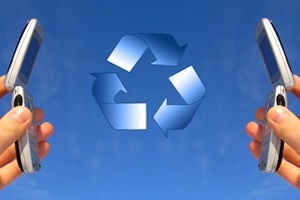Last updated April 12, 2019
 Electronic waste includes the likes of old cell phones, discarded computers, refrigerators, office electronic equipment, television sets and other entertainment electrical equipment, and it results in diverse effects on both the environment and on human beings. The waste needs to be contained, according to Norbert Duhuze, the Rwanda Environment Management Authority’s (REMA) Director of Environmental Regulation and Pollution.
Electronic waste includes the likes of old cell phones, discarded computers, refrigerators, office electronic equipment, television sets and other entertainment electrical equipment, and it results in diverse effects on both the environment and on human beings. The waste needs to be contained, according to Norbert Duhuze, the Rwanda Environment Management Authority’s (REMA) Director of Environmental Regulation and Pollution.
“Most of these electronics contain hazardous components that can be very dangerous and pollute underground water if they are not disposed of properly,” Duhuze told the New York Times. “We may not be in a position to immediately have a factory that can manage e-waste, but we will have some infrastructure in place to deal with the issue.” Duhuze says that no specific place has been earmarked for that purpose at present, although there is a store in the Ministry of Infrastructure where outdated electronic equipment from government bodies is stored.
Dr Ignace Gatare, the Minister in the President’s Office who is Charge of ICT, has confirmed to the New York Times that a team of experts has been set up by his office to produce a clear draft policy on the subject of the management of electronic waste.
In a different interview with the same newspaper, Rwanda Utility Regulation Authority’s (RURA) head of the ICT applications office which is in charge of electronic waste, Anita Batamuliza, says that a team of experts from REMA, RURA, the Ministry of ICT, RDB-IT and the Rwanda Bureau of Standards has been set up to draft the electronic waste management policy.